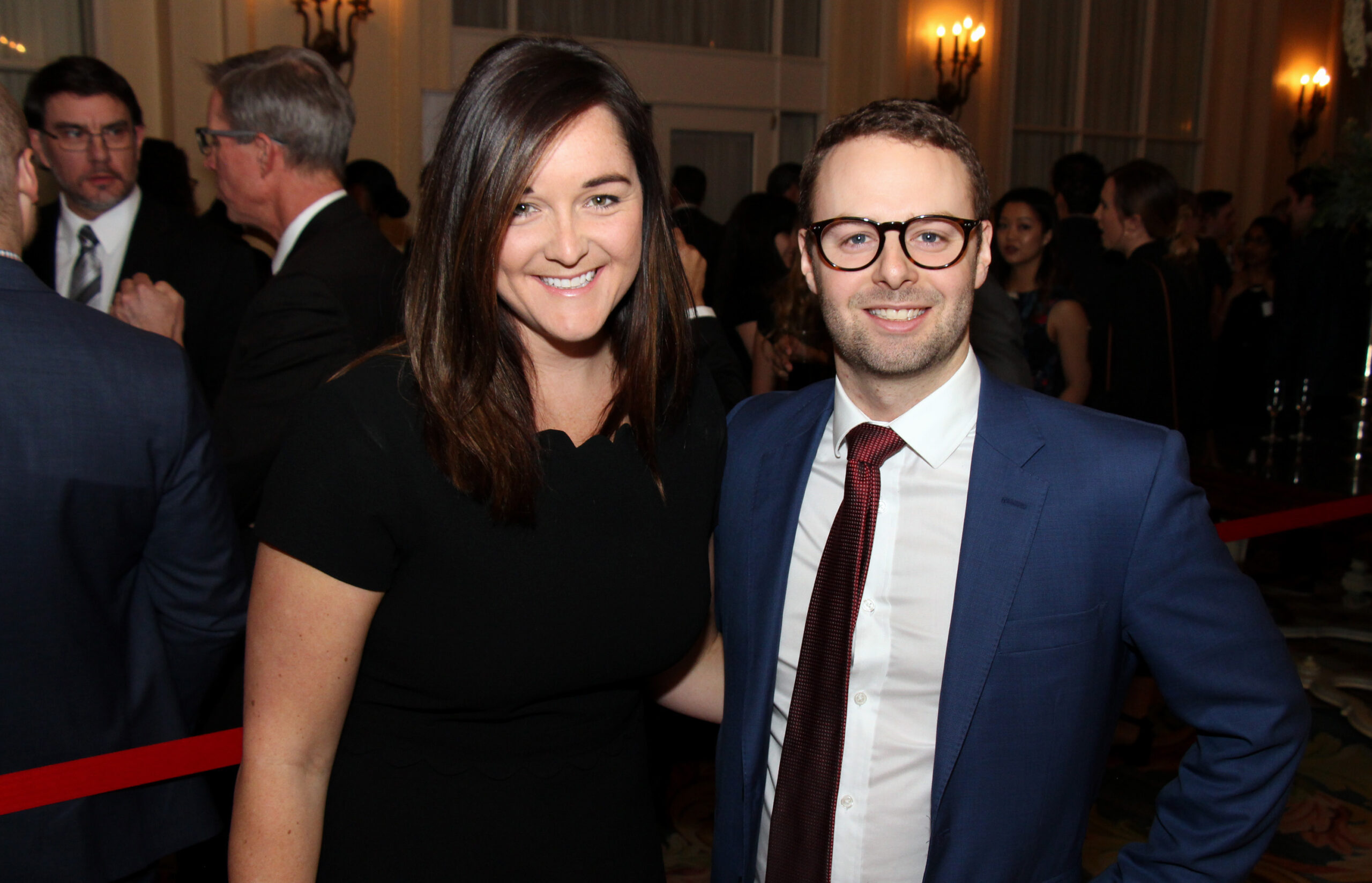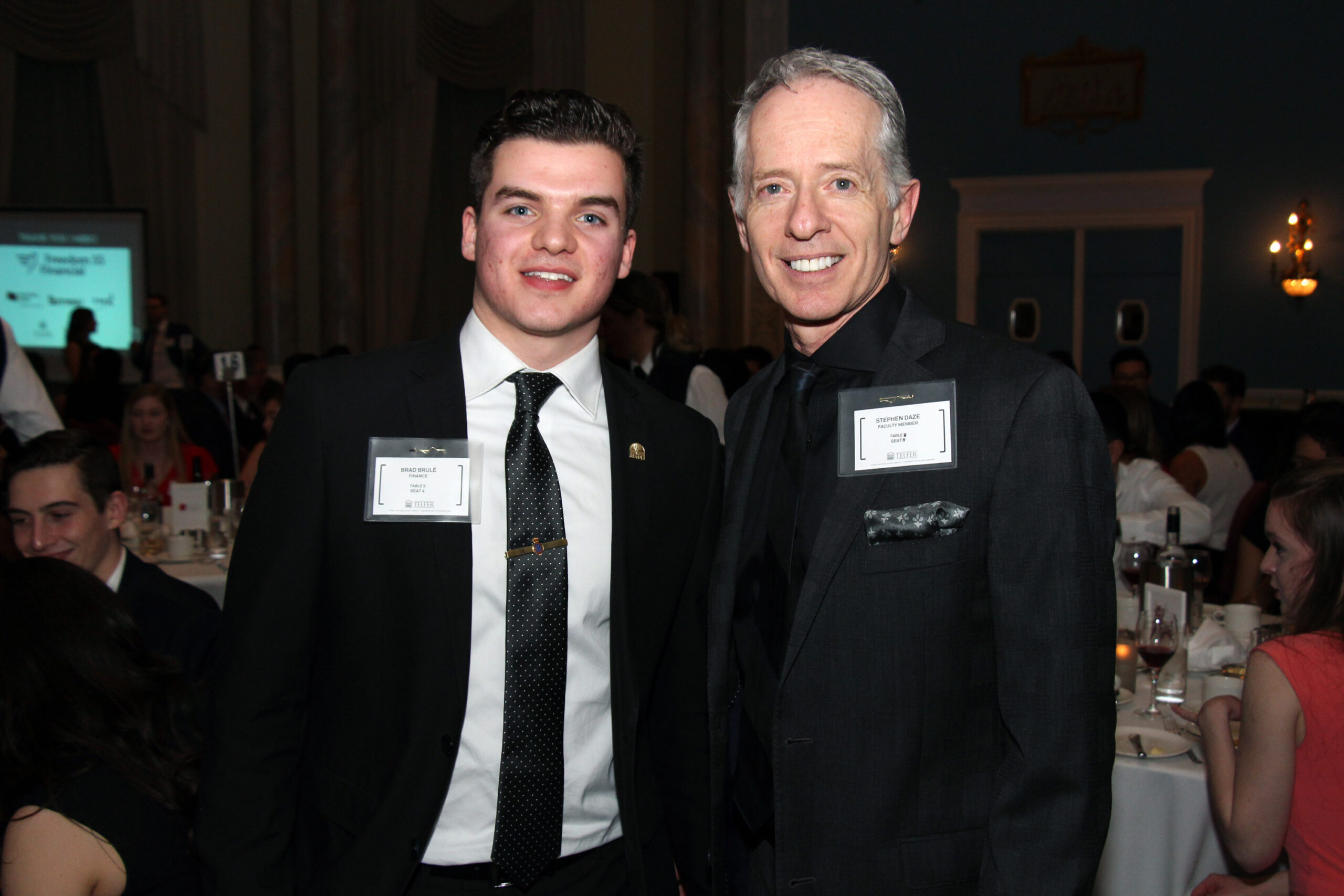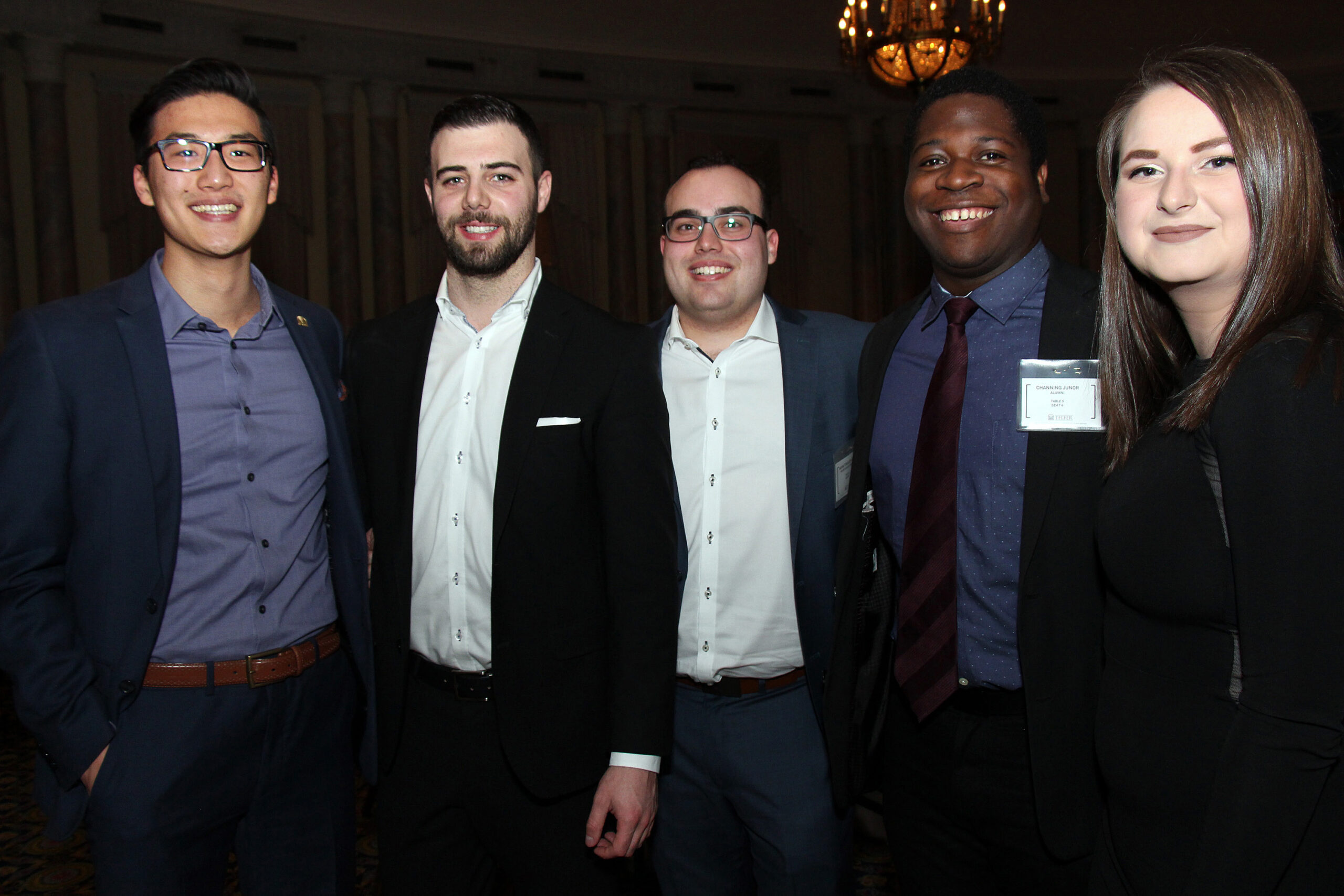The University of Ottawa’s Telfer School of Management really nailed it this year by bringing the CEO of Home Hardware to speak at the 27th Annual Toast to Success dinner organized by its Entrepreneurs’ Club (TECDE).
More than 200 attendees gathered Thursday at the Fairmont Château Laurier, including the dean of the business school, François Julien, TECDE co-presidents Marisha Sesto and Aveen Habib, and the business dinner’s project manager, Gabriel Chapman.
Terry Davis, chief executive of the Canadian-owned home-improvement chain Home Hardware, was entertaining and engaging as keynote speaker. It was Sesto’s grandfather who got Davis his first job with Home Hardware, in the warehouse. Davis may be head honcho now, but he started off earning $2 an hour in 1970.
OBJ360 (Sponsored)

Game on! How Ottawa REDBLACKS business experiences create meaningful connections
An Ottawa REDBLACKS game may be the only place a business leader should leave their game face at the door.

Game on! How Ottawa REDBLACKS business experiences create meaningful connections
An Ottawa REDBLACKS game may be the only place a business leader should leave their game face at the door.

Last year, Home Hardware, a cooperative of roughly 1,100 independent hardware stores, sold $6.3 billion worth of hardware and home improvement products across the country.
Home Hardware can be traced back to a side wholesale business, occupying 300 square feet of space atop a retail store in St. Jacobs, a small southwestern Ontario community that still serves as company headquarters.
Its big break came in 1963, when a group of independent hardware store owners — facing stiff competition from the growth of discount chains — agreed they would benefit from an organization that would allow for lower wholesale prices due to buying in bulk. A total of 122 dealers committed to the concept and formed a privately owned wholesale company.
“To this day, one of the seven principles of our company is that every dealer is treated equally,” said Davis, who opted for a regular business suit over the company’s trademark bright red jacket.
Incredibly blessed to be a part of the @tecdeottawa alumni network. I am in awe of the support and dedication from these #TelferAlumni.
Congrats #TECDE27 on a fabulous #BusinessDinner! pic.twitter.com/qs61KEOKtn
— Diana Kolesarova (@DianaKolesarova) February 2, 2018
The dinner crowd heard how the small company’s first attempts to roll into the Atlantic provinces were a financial disaster, until a more affordable shipping solution was finally found: buy fish guts from a plant in Nova Scotia, sell them to mink farmers in Ontario for food, then wash the trucks out thoroughly before transporting the hardware back in those trucks.
“When looking for partners to further your causes, don’t look in the obvious places, look in places that aren’t that obvious,” Davis advised. “It worked out for us.”
He also told the room how the company’s initial efforts to market itself on TV in the 1970s flopped. What it did instead to build its brand was buy large quantities of products, such as the Fantastic Lint Brush, that were being peddled on late-night television. As a result, Home Hardware was always the first company mentioned when the ads informed consumers where the product was sold.
“All everybody heard was, ‘Available at Home Hardware, blah, blah, blah, blah, blah,’” said Davis. “You’ve got to get your brand out there. If it means riding the coattails of others, do it. Just get your name out there in the public consciousness. That’s how you grow.”

As well, Davis spoke about the benefits of vertical integration, when a company controls the supply chain from manufacturing to end sales. Upon learning that its paint manufacturer, Sherwin-Williams, was going to be opening its own stores, Home Hardware decided to take out the middleman and create its own paint manufacturing facilities.
It’s important, however, to stick to your knitting, said Davis. He warned the young entrepreneurs against the dangers of diversification, which can help provide alternate sources of revenue.
Home Hardware was able to buy Beaver Lumber from Molson in 2000 because the brewing giant was being tackled by its competition in the beer business and needed to re-focus, he said.
“They wanted to get out of the hardware business so badly they lent us the money at zero interest to buy Beaver Lumber from them.”

Among the alumni was Brennan Loh, who was just happy to be in town for this year’s dinner. As the director of international markets for Ottawa-based Shopify, he’s often travelling the world with his job. He spent last year living and working in India’s high-tech capital, Bangalore. He was already part of the Shopify team by the time he graduated from the program in 2011.
For him, the evening was about catching up with old friends.
“There’s definitely a nostalgia to it all,” said Loh, a former president of TECDE and current member of its advisory board.
Loh credits the Telfer School of Management program with creating an environment that helped expose him to an interesting mix of people.
“As a young adult trying to figure out what it is you want to do professionally, and when those answers aren’t super clear in the early days, you get to meet a lot of other people who feel the same way,” said Loh. “That leads you to trying a whole bunch of different things, such as starting companies, working at really interesting startups, and networking.”

The dinner, presented by Freedom 55 Financial, included prizes and a silent auction in support of Special Olympics and an after-party in the ByWard Market.



caroline@obj.ca




